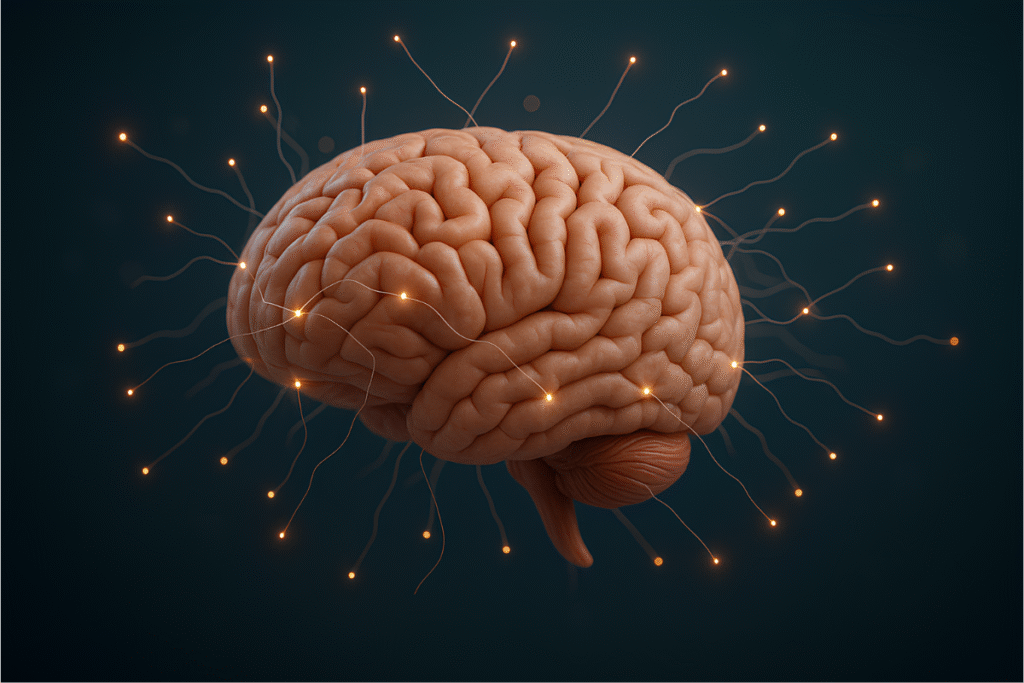
MIT research links regular ChatGPT use to reduced brain activity in key cognitive areas. Credit: maninisimio from pixabay via Canva.com
If you think you’re being smart and efficient, you type a half-baked prompt into ChatGPT, and then you get a polished response. You tweak it a bit to humanise it, hit send, and the job is done. But what if that little time saver is actually dulling your brain?. A study published by MIT in June 2025 revealed something deeply uncomfortable. People who are currently relying on ChatGPT for help with tasks such as problem-solving, writing, or even idea generation are showing noticeable changes in their brain activity.
The researchers used EEG scans to track brain activity in students over four months. Who uses the AI the most? Their brains were slower, less connected and showed reduced memory function even after they stopped using it; the effects didn’t bounce back.
What the MIT study showed
The findings marked the first real new neurological evidence that artificial intelligence is shaping how we think, or instead of how little we need to think. We’re not giving our minds enough space to think about those tasks, so instead, we outsource them, which reduces our brain’s engagement.
Over time, it’s not that we become lazy; it’s that we lose the ability to think deeply.
- Why is Google less damaging than ChatGPT?
- What does it mean regarding how we work, learn, and stay sharp in this ever AI-saturated world?
Researchers at MIT’s Human Systems Lab tracked 54 University students over the course of a 4-month period. Then they split them into three groups.
- The “Brain-only” group, which wrote essays and solved problems without external tools.
- The Google group allows users to search online for support.
- The ChatGPT group utilised the AI to assist with tasks such as brainstorming, outlining, and drafting.
All three groups were equipped with electroencephalogram (EEG) monitors, which tracked real-time brain activity, specifically in areas associated with memory, focus, and decision-making.
Here’s what they found:
- The ChatGPT group showed significantly reduced neural engagement, especially in the prefrontal cortex — the part tied to deep thinking and planning.
- They also retained less information and relied more on surface-level solutions.
- Alarmingly, even after the AI users were told to stop and work unaided, their brains didn’t fully re-engage. Some cognitive functions lagged behind the other groups for weeks.
If you compare this with the Google group, they maintained stronger cognitive activation because searching, as it turns out, is still a demanding cognitive task.
While AI does that interpretation for you, it’s not that AI makes you dull, it makes your thinking, specifically deep thinking, unnecessary, and that’s the real danger because you don’t see certain parts of the brain that activate, they start to shrink instead.
Memory, creativity, and long-term cognitive shift
The most alarming part of the MIT study is that the brain started to take a back seat, and the EEG scans showed the first less activity in memory-related regions, especially the hippocampus.
- Then came the drop in originality, where students relied on OpenAI tools to produce more responses that mimicked structures we had seen before.
- This would entail that they weren’t actually learning; they were assembling. This phenomenon is known as cognitive drift, which has nothing to do with cognitive decline or instant damage.
- A gradual weakening of your critical thought, deep memory retrieval, and creative flexibility occurs through this use.
To hammer this point home,
- Compared to lifting weights, the machine does half the work, allowing you to finish faster and look more efficient, but what about the long-term effects?
- You have trained your muscles to stop trying; that’s the same principle that applies to thinking.
The cost of overusing AI
The danger here is slow and cognitive erosion that you will not notice until it is already gone. You will complete your test, continue sending emails, write reports, and make arguments.
The way you do it will start to feel repetitive, flat, and the thoughts that don’t quite belong to you will begin to emerge. That’s the cognitive dissociation that occurs.
The overuse of AI is a form of detachment from one’s own thinking. From the fight that it takes you to find the sentence, the stumbles that would lead you to real insight, and the mental sweat that makes those ideas yours.
The study highlights the map of damage that it implicates. It’s the blanks there when the AI doesn’t respond.
It’s the sinking feeling that you don’t know how to begin without help, and it’s the moment you realise that the word sounds right but feels flat and empty. We built these tools to think for us, let’s not forget how to think with them.







